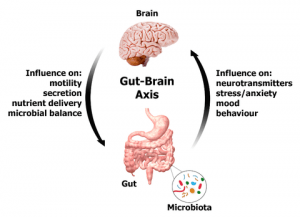Researchers at the Department of Psychology and Neuroscience (University of Colorado at Boulder) have presented their newest findings on the connection between microbiota and stress response.
In their article, published last month in ‘Brain, Behavior, and Immunity’, they claim that immunization with beneficial bacteria Mycobacterium vaccae may have long-lasting anti-inflammatory effects on the central nervous system, allowing the organism to be more resilient in the face of stressors.
Chronic inflammatory processes, either due to a neuroinflammatory disease or an exposure to acute/chronic stressors, are consistently linked with development of stress related disorders, such as PTSD, anxiety disorder or depression. One in four people is believed to be impacted by a stress related disorder during their lifetime.
When repeatedly injected with a vaccine of M vaccae and subsequently being stressed, male rates exhibited higher levels of an anti-inflammatory protein (interleukin-4), lower levels of a stress-induced protein (HMGB1), as well as less anxious behaviour, even after eight days.
Although further research is still needed, the lead author Mattew Frank hopes that, provided one could do that in people, it could have broad implications for a number of neuroinflammatory and stress related diseases.
Material from University of Colorado: https://www.colorado.edu/today/2018/06/06/immunization-stress-horizon
Journal Reference:
Matthew G. Frank, Laura K. Fonken, Samuel D. Dolzani, Jessica L. Annis, Philip H. Siebler, Dominic Schmidt, Linda R. Watkins, Steven F. Maier, Christopher A. Lowry. Immunization with Mycobacterium vaccae induces an anti-inflammatory milieu in the CNS: Attenuation of stress-induced microglial priming, alarmins and anxiety-like behavior. Brain, Behavior, and Immunity, 2018; DOI: 10.1016/j.bbi.2018.05.020
